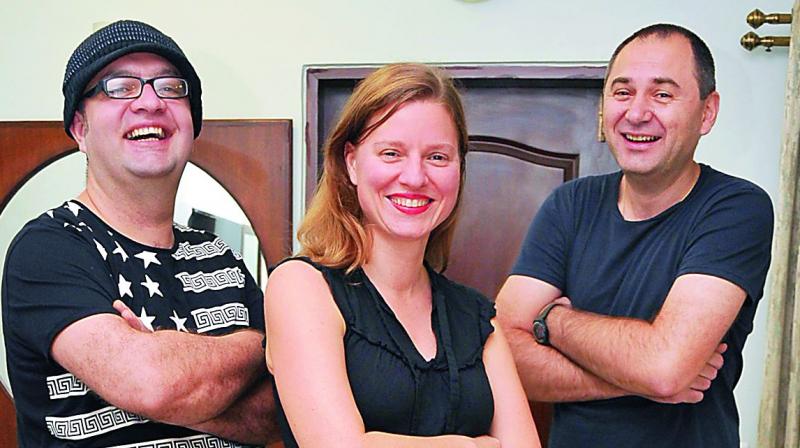Three's company: Julia Siedl in Hyderabad

Jazz is a symbol of emancipation and freedom, appealing to masses when it first took over the globe. So why is it considered a niche form of music today?
Ask Austrian jazz pianist Julia Siedl, who is in Hyderabad to perform with her band the Julia Siedl Trio. “Jazz developed in the ’60s from danceable music to concert music — people would appreciate it as an art form,” Julia says, adding, “African-Americans, too, made strong artistic statements with Jazz, declaring their own culture and being proud of it. All this came about with the development of Bebop, which sounded weird to the masses because it was complicated. It developed more into an art form that made it difficult to listen to, and needed knowledge of music to be appreciated.”
But even Julia picked up Jazz only after 12 years of learning classical music on the piano, beginning at the age of 7. She says, “It got annoying — studying just one piece for months, playing it at a concert and then moving on to the next. I always wanted to play in a group and improvise.
“There was a jazz ensemble in the music school I went to so I switched to jazz and I enjoyed it. The approach is more open — you have to understand the music and build your own repertoire, and work on it.”
In 2012, she met Stefan Pista Bartus and began playing at concerts and gigs with him, until they decided to form their three-piece act with Andjelko Stupar in 2014. “We met through the local jazz scene. We became friends and we began to appreciate each other’s music. There are so many musicians who try to be perfectionists to avoid mistakes, but you lose the spirit of the music,” Julia explains.
Currently playing at venues across Europe — Hyderabad being their last stop of the Indian leg of their tour — the trio play songs off their first album Good News, that released in October in this year, not forgetting their fun approach to Jazz.
Julia explains, “For me, it’s important to have that spirit of groove and flow. It needs to breathe and have that ‘wow’ effect. You can’t really do anything ‘new’ in music, because you’re limited by the same octaves and notes — it’s important to find your own personality in the music you create.”

